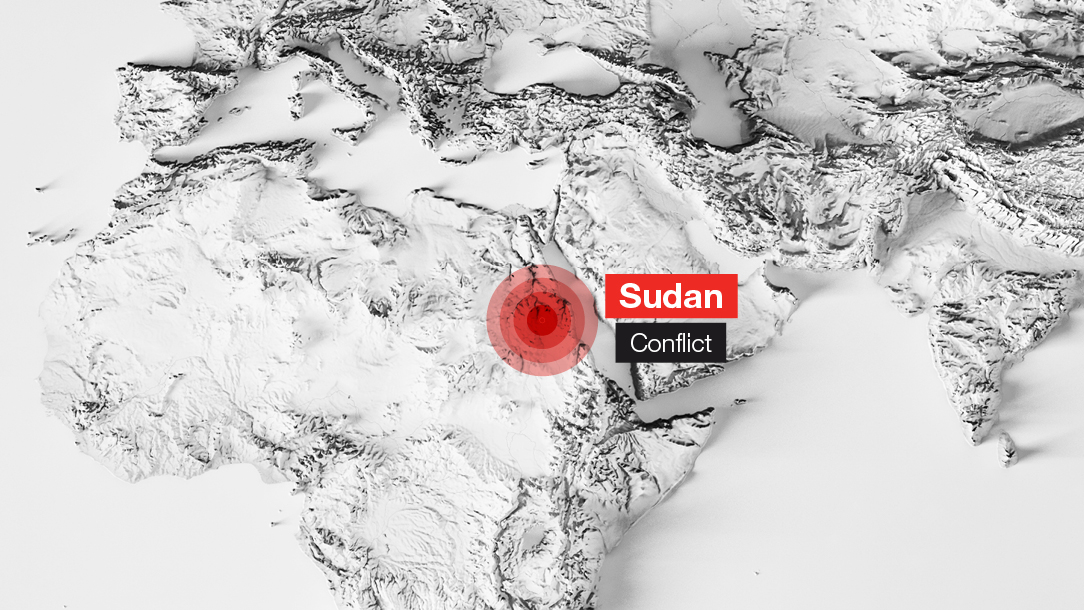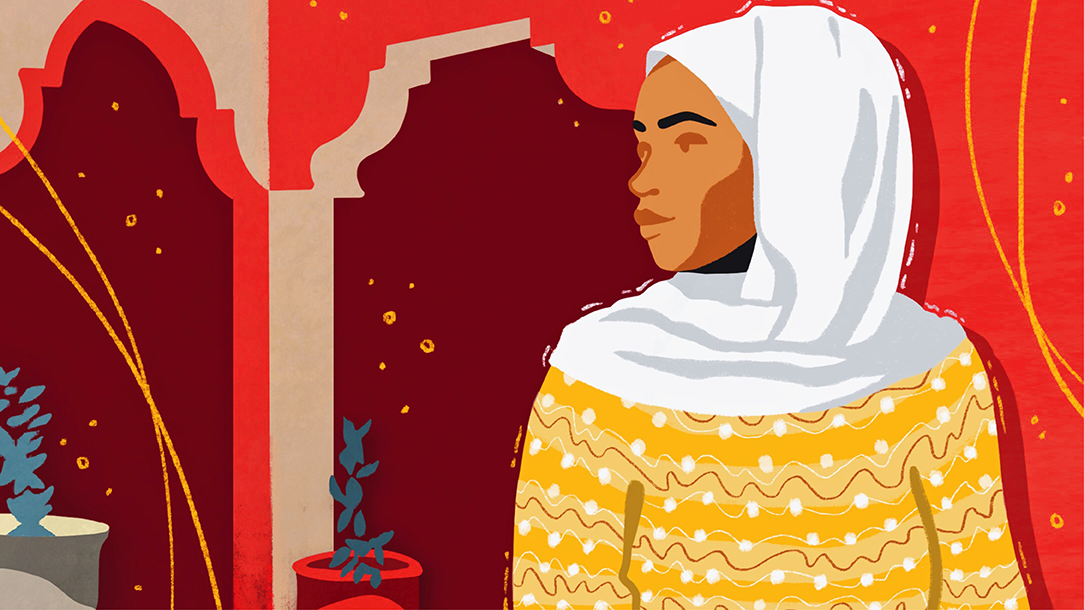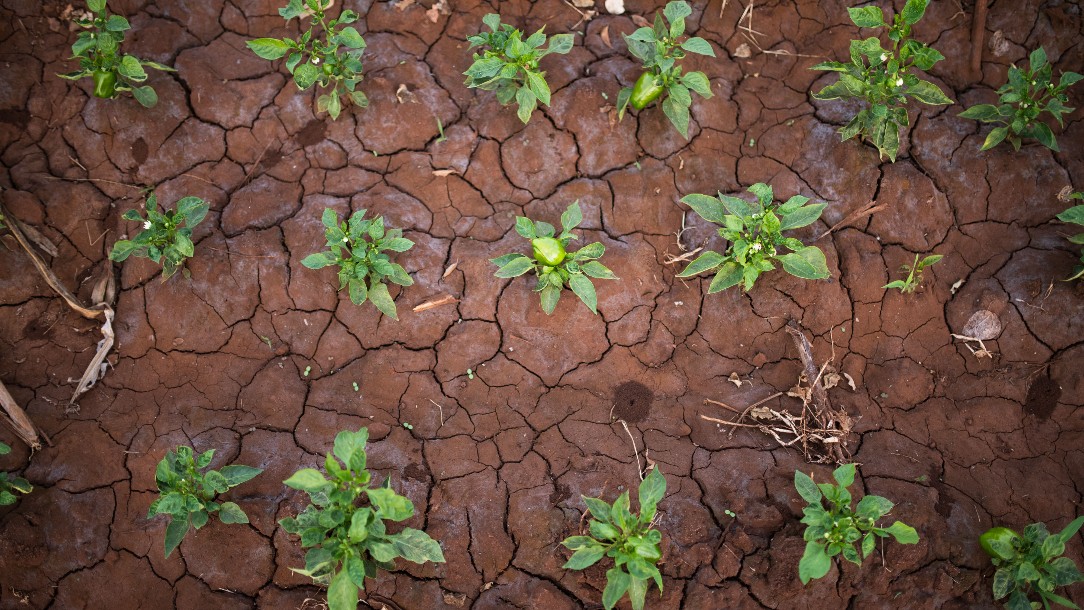What is happening in Sudan? 24.6 million people face hunger
Two years after conflict began in Sudan and the humanitarian crisis is only worsening - but aid can pull the country back from the brink. Find out the latest news from Sudan and how the Red Cross is supporting refugees across the region
Last updated 16 April 2025
Two years since fighting began in Sudan, the country faces one of the world’s worst humanitarian crises.
Half of the country doesn’t have enough food, and millions of people don’t have the basics to survive. Relentless fighting has taken its toll on civilian infrastructure, meaning essential services like water and healthcare are out of reach for millions.
- 150,000 people have died
- 24.6 million people don't have enough food to eat
- 3.5 million children are malnourished.
An escalating food crisis in Sudan
Across Sudan, 30.4 million people need humanitarian assistance. A lack of safe access for humanitarian organisations is making delivery of aid difficult and has worsened food shortages, leading to a devastating food crisis.
Approximately 24.6 million people face acute hunger, with 10 areas of the country currently experiencing or projected to face famine, and another 17 at risk of famine, according to the IPC.
An estimated 3.5 million children under the age of five and 1.2 million pregnant and breastfeeding women are acutely malnourished, which is an increase of over 22 per cent compared to the beginning of 2023, when the conflict began.
Fighting and displacement has forced farmers to miss planting seasons which, combined with already high food prices, has left many families without enough to eat in a country where 70 per cent of people rely on agriculture and livestock for survival.

Millions have been forced to flee their homes
According to UNHCR, almost 12.9 million people have been forcibly displaced from their homes since the beginning of the conflict. Almost nine million people have been internally displaced within Sudan, while more than three million have sought safety outside the country, including in Chad, Egypt, South Sudan, Libya, Uganda, Ethiopia and the Central African Republic.
Internally displaced people are particularly vulnerable to the dire humanitarian issues facing people across Sudan: 97 per cent of internally displaced people in Sudan are in areas that face crisis levels of food insecurity or worse.
A heavier than usual rainy season in 2024 compounded problems, with around 12,000 homes reported destroyed and more than 44,000 people displaced by the heavy rains.
Women and girls at high risk in Sudan
The conflict has had a “catastrophic” impact on women and girls, according to UN Women, with a two-fold increase in gender-based violence since the outbreak of hostilities.
The agency reports that there has been a drastic increase in reports of sexual and gender-based violence and abuse, with many cases going unreported due to fear and stigma.
Women and girls also more greatly feel the impacts of food insecurity and lack of access to water and sanitation:
- At least 80 per cent of internally displaced women in Sudan are unable to get clean water.
- 75 per cent of school-age girls are currently out of education, which leaves them at increased risk of child marriage and female genital mutilation.
Support for female refugees affected by sexual and gender-based violence
The Danish Red Cross, alongside the British Red Cross, the Sudanese Red Crescent Society and Ahfad University for Women, ran a project for over three years that was aimed at improving the wellbeing of women and girls. This was made possible thanks to players of People’s Postcode Lottery.
While it started before the outbreak of the conflict, it informed men and women of the dangers of sexual and gender-based violence, as well as other threats facing women and girls.
Sadly, most Sudanese women who arrive in neighbouring Chad have experienced some form of sexual violence. Red Cross volunteers trained in psychosocial support are helping them process what they’ve been through.
Yacoub, programme coordinator for the Chad Red Cross (CRT), explained how they work to prevent sexual and gender-based violence:
“93 per cent of refugees are women and children," he said. “There are some women who are alone, widows with children, unaccompanied children. There are so many categories and types of refugees who are here.”
Munana's story
Munana, 24, fled Sudan with her two children in 2024. Her husband, Yousef, went missing during the violence in Darfur. They do not know if he is dead or alive.
“The journey between Sudan and here was very difficult," she said. “When we arrived here the Red Cross welcomed us, God bless them. They have given us a tent, lights, toiletries and water.”
How is the Red Cross and Red Crescent Movement responding to the crisis in Sudan?
Since conflict began, the Sudanese Red Crescent Society (SRCS), the International Committee of the Red Cross (ICRC), the International Federation of Red Cross and Red Crescent Societies (IFRC) alongside other National Societies, have worked closely together in their response.
The Sudanese Red Crescent Society (SRCS) has been active in all 18 states of Sudan since the first days of the crisis, with more than 12,000 volunteers playing a part.
Their work includes:
- Reaching almost eight million people with humanitarian aid.
- Distributing food and cash reaching 1.2 million people in Khartoum, Darfur and 11 other states of Sudan in partnership with the World Food Programme.
Sadly, since the conflict in Sudan began, 21 staff and volunteers from SRCS have tragically lost their lives.

Ahmat, a volunteer with the Chad Red Cross, seen entering an improvised camp in Chad, where thousands of Sudanese people have fled conflict. PHOTO: Salomon Dainyoo
The International Committee of the Red Cross (ICRC) has been present in Sudan since 1978, supporting people affected by conflict in Darfur, Blue Nile and South Kordofan.
Working closely with SRCS since 2023, the ICRC has provided essential support, which has included:
- 42,917 people admitted to hospital, who received wound treatment or surgical operations.
- Supporting 88 hospitals with emergency trauma supplies reaching 6,800 patients.
- Ensuring supplies of clean water for nearly 2.2 million people.
- Providing food support to more than 200,000 people, and essential items including soap and blankets to more than 100,000 people.
How is the British Red Cross helping people from Sudan?
The British Red Cross is supporting the response in Sudan through our Disaster Fund and other specialist support, including cash assistance to support families experiencing severe levels of food insecurity.
In Chad
The British Red Cross works closely with the Chad Red Cross, funding and collaborating on programmes within the country. Many of these programmes support people fleeing the conflict in Sudan, establishing humanitarian service points (HSPs), providing access to clean drinking water, distributing food and hygiene supplies and providing cash assistance.
At HSPs across the Sahel region, refugees receive immediate assistance.
“HSPs are a package of activities that doesn’t just stop at protection, there are other activities that are included, like nutrition and health services," explains Yacoub. “When people come, we welcome them and give them biscuits, then we direct them to health services or via the ambulance if it’s an emergency.”
In the UK
Since the start of the conflict our services have supported almost 3,000 Sudanese refugees and asylum seekers, including 1,431 people through Restoring Family Links, which includes 1,259 people helped through the international family tracing service.
As always, we will continue to be there for people who need us for as long as we are needed.
Our Disaster Fund
From supporting people affected by an earthquake to people fleeing conflict and food crisis in Sudan, donations to our Disaster Fund ensure the Red Cross can be there for those who have nowhere else to turn.
Donate to the Disaster FundMore on Sudan and the food crisis

The women-led programme supporting trafficked women and girls on their road to recovery
A safe house in Eastern Sudan is helping women process their trauma and move forward with their lives. This is Edana's story

What is food insecurity?
'Food insecurity’ is a term you might have seen appearing more and more in the headlines in recent weeks. But what does it actually mean?

Africa hunger crisis: more than 140 million people are now struggling to eat
Soaring food prices, conflict and climate change are plunging Africa into a severe and enduring food crisis. The British Red Cross has launched an appeal to help avert catastrophe.


